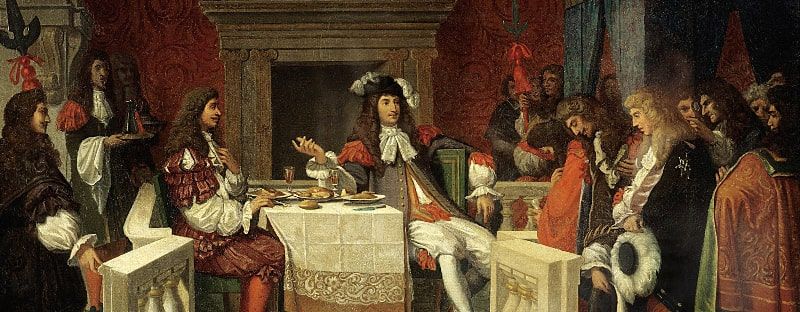Molière, a universal writer always in the news
Molière addresses themes that have been present throughout the history of mankind. It is impossible to imagine any other playwright in the theater of the 18th and 19th centuries who could be above Molière because he does not exist. 400th anniversary of the birth of the creator.

The French playwright Molière addresses themes that have been present throughout the history of mankind. In the theater of the 18th and 19th centuries, it is impossible to imagine any other author who could be above Molière, because he does not exist. It is the 400th anniversary of the birth of the creator of "The Imaginary Sick Man" and "Tartuffe".
To the satire, criticism, and mordacity of the plays of Jean-Baptiste Poquelin, Molière's real name (January 15, 1622-February 17, 1673), we should add one more characteristic: their topicality, which makes him a very entertaining author. The French playwright "deals with themes that have been present throughout the history of mankind, the same problems, the same weaknesses of human nature that present their most unpleasant face, but at the same time, the most comical. And everything that makes us laugh deserves to continue to be represented," said Claudia Ruiz García, an academic at UNAM's Faculty of Philosophy and Letters (FFyL).
Indeed, one of the most universal writers and translated into all languages managed to "correct customs by laughing", as the Latin expression Castigat ridendo mores indicates, referring to comedy and satire that ridicule human vices and defects, in this case in 17th century France. 400 years after Molière's birth, the graduate in Modern Language and Literature (French) from the UNAM, master in linguistics from the Université Stendhal III (Grenoble, France), and Ph.D. in Literature from this university, mentions that like other classics, Poquelin is studied because he continues to answer questions. After all, he continues to "speak" to us.
For example, in the comedy " The Imaginary Sick Man", for one of the characters -a fierce caricature of a doctor-, he takes a model that exists in reality at that time, a famous doctor from the Sorbonne who is at war with the supporters of Cartesianism and who says that we must continue to study Aristotle and learn by heart. This model could be universal, that of the conservative, the one who does not want to incorporate new knowledge because "tradition says it has to be this way". When we see another of his comedies, "Tartuffe", we remember that we also see false devotees everywhere today; "it is enough to see what happens in the Church, the double discourse, to think that this universe is full of hypocrites who on the one hand speak of sanctity, and on the other, commit abuses".
With Molière it happens as with other great figures, such as Shakespeare: his presence is such that it overshadows all possible playwrights who in his time tried to make plays or write theater, and who remain "halfway". He is an author who passed into posterity and whose characters have remained in the tradition. In the theater of the later centuries, XVIII and XIX, to imagine any other playwright who could be above Molière is not possible, because he does not exist.

Molière, who was also an actor, lived in a privileged situation because he also had no rivals in his time. "He is a unique case as if isolated in his century, and that is why all theater critics focus on him to say that 'he is very skilled in a certain aspect', that he manages to 'create a rite in the theater that is unparalleled', or that 'the mastery of specificity in the language of each character is fabulous'". This would justify the position he achieved as a great author of 17th-century comedy in France, a period that can be equated with the Spanish Golden Age. Just as in Spain there were great playwrights, such as Calderón de la Barca or Tirso de Molina of whom he was a reader, Molière created a specificity for the case of French theater.
Today, there are a series of adaptations of his works to the cinema or even his novelized biography, which can give us a vision of this irreverent author, who integrated into the theater a series of philosophical polemics of his time, making them accessible to the entire public, because his representations were not only attended by the French Court; in the theater, there were also people standing, in a gayola, even in the back, and everyone reacted to the comic and serious situations of his stagings.
Molière wrote, acted, directed, and even played the leading role. His repertoire is vast, says Claudia Ruiz, and includes short and long plays, written in verse or prose. He could talk about a false devotee, a nouveau riche, a hypochondriac, a cheapskate or a cuckold, "defects" inherent to human nature, but which he "dressed up" in a fabulous way. The theme of doctors is important in his work and is present until the end of his life, in "The Imaginary Patient", which is considered an emblematic work. Another theme that comes and goes is that of jealousy, through insecure characters, who suffer, who are afraid that women will betray them.

Another of her themes is female access to knowledge; in " Wise Women" there are heated, current, intelligent discussions between protagonists who do not want to assume the role of housewives and prefer to devote themselves to science or philosophy; and on the other side of the coin is "The Ridiculous Precious Women", a terrible criticism of those women who put a price on love or friendship. In " Women's School" the parents want to keep their daughters in total ignorance because they know that education can be a factor of emancipation.
Member of a wealthy family, as the son of an upholsterer of rank in the Court, Jean-Baptiste Poquelin soon became clear that he did not want to practice his father's trade; from a very young age, he had known the passion of the stage, of writing and improvising, and decided to devote himself to the theater. He had ups and downs; some of his plays were accepted by the critics and the public, and others were condemned; there is a part of his production where his plays are "acid", sad, in contrast with the amusements, farces, and comedies, to which the public was accustomed.
The writer had the great fortune of being appreciated by Philip I of Orleans, brother of King Louis XIV of France, who also attended his theatrical presentations. This protection, which at the end of his life had been withdrawn, was decisive for him to have a dignified burial (since at that time actors could not be buried in the cemetery), after dying of tuberculosis. His epitaph, written by himself, reads: "Here lies Molière, the king of actors. At this moment he is playing the dead and he is doing it well".




